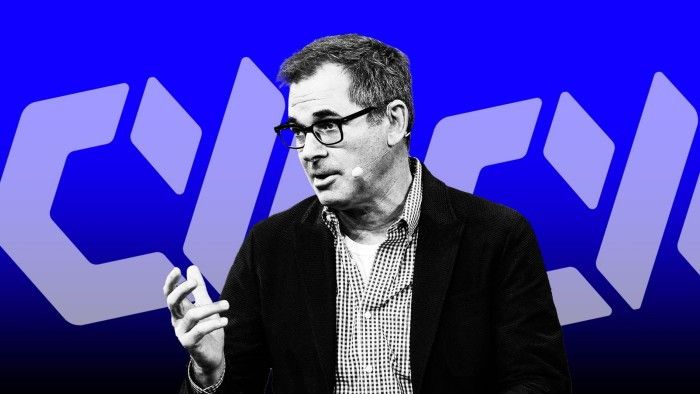The New AI Billionaires of 2025: How Artificial Intelligence Reshaped Global Wealth

In 2025, artificial intelligence is no longer just a futuristic concept, it has become one of the most powerful wealth-creation engines in history. From data infrastructure to generative AI tools, AI’s explosive growth has minted a new class of billionaires, many of whom were virtually unknown just a few years ago.
A new report by Visual Capitalist, drawing on data from CNBC, Forbes, and Bloomberg, highlights the world’s new AI billionaires in 2025.
Photo Credit: Visual Capitalist
The list includes entrepreneurs from both the United States and China, as well as companies spanning robotics, cloud infrastructure, generative AI, and conversational intelligence. Together, these names represent not just financial success, but the way AI is redistributing global influence and rewriting the rules of modern business.
Michael Intrator – CoreWeave ($6.0B)
The biggest winner of this AI gold rush is Michael Intrator, co-founder and CEO of CoreWeave, whose net worth now stands at an estimated $6 billion.

Photo Credit: Pinterest
CoreWeave is a cloud infrastructure company specializing in GPU-based computing power—the lifeblood of AI training. As AI adoption skyrocketed, demand for GPUs surged to unprecedented levels, and CoreWeave positioned itself as the go-to cloud provider for startups and corporations alike.
The company’s rise mirrors how railroads fueled the industrial revolution or how oil companies dominated the early 20th century. Today, computing power has become the new oil, and Intrator is at the center of this supply chain.
CoreWeave’s partnerships with major AI labs—including OpenAI and Anthropic—cemented its dominance and turned Intrator into AI’s first major infrastructure billionaire.
Alexandr Wang – Formerly Scale AI, Now Meta ($3.6B)
Alexandr Wang became a billionaire by co-founding Scale AI, a company that built data-labelling platforms crucial for training machine learning models. In 2025, he transitioned to a senior role at Meta, bringing Scale’s expertise into the social media giant’s AI roadmap.
At $3.6 billion, Wang is one of the youngest billionaires in tech. His story highlights the central truth of AI: data is everything. Without massive, high-quality datasets, AI models cannot learn or improve.
Scale AI provided this data pipeline to companies ranging from self-driving startups to Fortune 500 enterprises, effectively becoming the “factory” where AI raw material was refined.
His move to Meta underscores how big tech firms are consolidating AI talent, acquiring not just companies but visionaries who can scale AI across billions of users.
Joe Lonsdale – 8VC and Palantir ($3.4B)
Joe Lonsdale, already known for co-founding Palantir, saw his wealth climb to $3.4 billion in 2025 thanks to investments through his venture firm 8VC.
Lonsdale’s trajectory illustrates how AI wealth isn’t limited to startup founders, it’s also rewarding early investors who bet on the technology before it went mainstream. Palantir itself, a company rooted in government and defence analytics, has doubled down on AI-driven data intelligence platforms.
With governments worldwide increasingly dependent on AI for national security, defense simulations, and surveillance, Palantir’s role has expanded. Lonsdale now sits at the intersection of venture capital, defense, and AI geopolitics, making him one of the most influential figures in AI wealth creation.
Lucy Guo – Passes ($1.3B)
Lucy Guo, co-founder of Scale AI alongside Alexandr Wang, carved her own billionaire path with Passes, a platform that blends creator monetization with AI-driven personalization. Her estimated net worth is $1.3 billion.
Passes leverages AI to allow creators, whether artists, influencers, or educators, to customize fan experiences, predict content demand, and build sustainable income streams.
Guo’s success signals an important shift: AI isn’t just about infrastructure or enterprise, it’s reshaping the creator economy too. Her journey also reflects a rare story in Silicon Valley: a woman breaking into the billionaire ranks of an industry still dominated by men.
Yao Runhao & Liang Wenfeng – DeepSeek ($1.3B and $1.0B)
China’s AI ascent is represented by Yao Runhao and Liang Wenfeng, co-founders of DeepSeek, with net worths of $1.3 billion and $1.0 billion respectively.
DeepSeek is an AI startup focusing on large-scale generative AI systems, competing directly with U.S. giants like OpenAI and Anthropic. Its rapid success is partly due to China’s push for technological independence in AI, amid geopolitical tensions with the United States.
The rise of DeepSeek shows that AI wealth is becoming a two-pole race, with China determined to challenge Silicon Valley’s dominance. The founders’ success also reflects Beijing’s aggressive support for domestic AI champions, ensuring they have the funding and infrastructure to compete globally.
Brett Adcock – Figure ($1.5B)
Brett Adcock, with a net worth of $1.5 billion, is the founder of Figure, a robotics company aiming to build humanoid robots powered by advanced AI.
Figure’s vision is ambitious: robots that can work alongside humans in warehouses, factories, and even households. With labor shortages affecting industries worldwide, humanoid robots represent the next frontier of automation.
Adcock’s rise mirrors past industrial shifts—just as Henry Ford revolutionized factories with cars and assembly lines, robotics entrepreneurs like Adcock are preparing to revolutionize work itself.
Michael Truell – Anysphere ($1.3B)
Michael Truell, co-founder of Anysphere, joined the billionaire list with $1.3 billion in wealth. Anysphere builds AI-powered coding assistants and developer tools, putting it in direct competition with GitHub Copilot and other AI programming platforms.
The success of Anysphere highlights the demand for AI coding assistants, which drastically reduce development time and allow even small teams to build complex applications.
With software now running nearly every industry, the demand for AI-powered coding solutions will only increase, making Truell’s stake extremely valuable.
Aravind Srinivas – Perplexity AI (>$1.0B)
Aravind Srinivas, co-founder of Perplexity AI, became a billionaire with an estimated worth of over $1.0 billion.
Perplexity AI positions itself as an AI-powered search engine, offering a conversational alternative to Google. Unlike traditional search engines that bombard users with ads and links, Perplexity delivers direct, contextual answers, powered by large language models.
The company’s trajectory suggests a potential disruption of Google’s search monopoly, echoing how Google itself once displaced Yahoo and AltaVista. Srinivas’ success shows that search is still up for reinvention, and AI may finally be the force to reshape it.
Dario Amodei – Anthropic ($1.2B)
Dario Amodei, a former OpenAI executive, co-founded Anthropic, which is now valued in the tens of billions. His personal net worth sits at $1.2 billion.
Anthropic’s flagship product, Claude, is a direct rival to ChatGPT. The company has positioned itself as a leader in “constitutional AI,” emphasizing safety, alignment, and ethical usage. Backed by major investors like Google, Anthropic has become one of the most serious challengers to OpenAI.
Amodei’s billionaire status underscores how splinter startups from big labs (OpenAI in this case) can flourish by targeting weaknesses in incumbents—like concerns over transparency and governance.
Ilya Sutskever – SSI (>$1.0B)
Once the chief scientist of OpenAI, Ilya Sutskever co-founded SSI (Safe Superintelligence Inc.), an AI lab focused on building safe, aligned artificial general intelligence (AGI). His net worth is now estimated above $1 billion.
Sutskever’s pivot to safety-focused AI research reflects growing concerns that super intelligent systems could pose risks if not properly controlled. By championing AGI safety while still building commercially viable products, SSI has attracted major funding and investor confidence.
His rise mirrors a broader shift: as AI advances, the biggest fortunes may not just come from capability, but from managing the existential risks of AI itself.
Mira Murati – Thinking Machines (>$1.0B)
Finally, Mira Murati, former CTO of OpenAI, now leads Thinking Machines, an AI research and product company that pushed her net worth beyond $1.0 billion.
Murati, who helped guide the development of GPT models, left OpenAI to create her own path in the AI landscape. Thinking Machines focuses on human-centered AI tools, designed to augment rather than replace workers.
Her success story is significant for two reasons:
She is one of the few female leaders in AI to reach billionaire status.
She represents the spin-off wave—top executives leaving big labs to create their own startups, further fragmenting the AI ecosystem.
Patterns Behind the New AI Billionaires
Looking across the list, several clear patterns emerge:
Infrastructure is King – CoreWeave, DeepSeek, and Anysphere show that the biggest money lies not just in flashy apps but in the hardware, compute, and data pipelines powering AI.
Spin-offs Create New Giants – Anthropic (from OpenAI) and SSI (also from OpenAI) demonstrate that talent leaving incumbents can build billion-dollar challengers.
Global Competition Is Heating Up – While the U.S. still dominates AI wealth creation, Chinese founders like Yao Runhao and Liang Wenfeng prove that AI is central to the U.S.–China rivalry.
Women Are Breaking Through – Lucy Guo and Mira Murati stand out in a sector still criticized for gender imbalance, suggesting progress in diversifying tech wealth.
Safety and Ethics Are Big Business – Companies like Anthropic and SSI show that AI alignment and governance are not just philosophical debates—they’re billion-dollar industries.
Historical Comparison: Faster Than Any Previous Tech Wave
The AI billionaire surge is unprecedented in its speed. Consider this:
The personal computer revolution minted billionaires like Bill Gates and Michael Dell—but it took decades.
The internet wave created Google, Amazon, and Facebook billionaires within 10–15 years.
The mobile wave (2007–2015) saw Uber, Airbnb, and ByteDance create fortunes in under a decade.
The AI wave (2022–2025) has minted billionaires in just three years—a record acceleration.
This shows that the AI adoption curve is collapsing time: both products and fortunes are scaling at lightning pace.
Conclusion
The list of new AI billionaires in 2025 is more than a ranking, it’s a snapshot of how artificial intelligence is reshaping the world. From cloud infrastructure to humanoid robots, from AI search engines to creator platforms, these fortunes were built on reshaping how humans interact with technology.
Some are betting on speed and scale, others on safety and ethics, and still others on entertainment and personalization. But together, they represent the dawn of an era where AI wealth rivals oil wealth, and algorithmic power rivals industrial power.
In the years to come, we may see not just new billionaires, but entirely new definitions of what wealth and influence mean in a world governed by artificial intelligence.
(All images are from pinterest)
You may also like...
When Sacred Calendars Align: What a Rare Religious Overlap Can Teach Us

As Lent, Ramadan, and the Lunar calendar converge in February 2026, this short piece explores religious tolerance, commu...
Arsenal Under Fire: Arteta Defiantly Rejects 'Bottlers' Label Amid Title Race Nerves!

Mikel Arteta vehemently denies accusations of Arsenal being "bottlers" following a stumble against Wolves, which handed ...
Sensational Transfer Buzz: Casemiro Linked with Messi or Ronaldo Reunion Post-Man Utd Exit!

The latest transfer window sees major shifts as Manchester United's Casemiro draws interest from Inter Miami and Al Nass...
WBD Deal Heats Up: Netflix Co-CEO Fights for Takeover Amid DOJ Approval Claims!

Netflix co-CEO Ted Sarandos is vigorously advocating for the company's $83 billion acquisition of Warner Bros. Discovery...
KPop Demon Hunters' Stars and Songwriters Celebrate Lunar New Year Success!

Brooks Brothers and Gold House celebrated Lunar New Year with a celebrity-filled dinner in Beverly Hills, featuring rema...
Life-Saving Breakthrough: New US-Backed HIV Injection to Reach Thousands in Zimbabwe

The United States is backing a new twice-yearly HIV prevention injection, lenacapavir (LEN), for 271,000 people in Zimba...
OpenAI's Moral Crossroads: Nearly Tipped Off Police About School Shooter Threat Months Ago
ChatGPT-maker OpenAI disclosed it had identified Jesse Van Rootselaar's account for violent activities last year, prior ...
MTN Nigeria's Market Soars: Stock Hits Record High Post $6.2B Deal

MTN Nigeria's shares surged to a record high following MTN Group's $6.2 billion acquisition of IHS Towers. This strategi...






